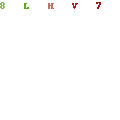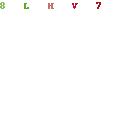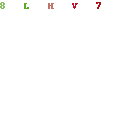 I IMPORTANT POINTS
I IMPORTANT POINTS
1. Follow all the techniques of public speaking.
2. Answer very confidently.
3. Answer very loudly.
4. Look more at the questioner while answering, but do not neglect the others.
5. If someone contradicts any of your statements but you are positive about your homework and statistics, please don’t get shaken up.
6. Do not allow the answers to be interrupted by frequent, unwanted comments.
7. Always keep your mind open and alert while answering.
II POINTS TO BE AVOIDED
1. Do not get irritated with the questioner.
2. Do not get angry, and always remain cool and calm.
3. Do not beat around the bush and answer precisely to the point.
4. Do not give false and wrong information.
5. Do not confuse yourself while answering.
6. Do not become blank.
7. Do not fumble.
8. Do not look tense.
9. Do not become nervous.
III UNUSUAL CIRCUMSTANCES
1. Questioner is provocative and violent:
(i) If the questioner is provocative and violent, do not get angry. Maintain your cool and calmness by answering humbly.
(ii) The more violent and provocative the questioner is, the more humble, calm and soft should your approach be while answering.
(iii) Try to have the maximum contrast between the attitude of the questioner and yourself while answering, to win over the questioner and the audience.
(iv) Note and answer all his points with logic and reason.
2. Questioner’s intention is to play mischief:
(i) Note and answer all his points with logic and reason.
(ii) Do not get irritated.
(iii) If required try and expose his intention to the audience by giving an appropriate example.
3. Questioner tries to insult and put down the speaker:
(i) Do not feel offended.
(ii) Do not get nervous or tense.
(iii) Answer very firmly and confidently.
(iv) If required you may raise your voice and answer loudly but do not loose your temper.
(v) Answer loudly to be effective but not out of anger or in retaliation.
(vi) Ask rhetoric questions to the questioner, to substantiate his claim.
(vii) Give information or statistics to prove his point wrong.
4. Questioner interrupts the Answer:
It may happen that the questioner interrupts the answer and makes some comments or remarks before the answer is complete. In such a situation:
(i) If his intention seems to be good and it is a genuine interruption, be patient and complete the answer and include the clarification he requires.
(ii) If the interruption is not required and he poses a sub-question, politely ask him to be patient and say, "I was about to cover the answer to this sub-question and I request you to be patient till I complete my reply".
(iii) If the questioner often interrupts and disturbs, then say that you gave him a fair hearing while he was posing the question and it is his duty to give you a fair hearing while you are answering. (If the chairman is well-versed, then he too can ask the questioner not to interrupt you).
5. If the Questioner argues with the speaker:
(i) Politely but firmly reply that this is a question and answer session and not a discussion or a debate session.
(ii) Say, "This is my view regarding the question, if you like it then Alhamdulillah, you may agree with it. If you don’t, no one forces you to follow it blindly. And Allah knows best".
(iii) Say, "If you have any additional question, you are most welcome to go at the back of the queue and await your next chance to ask your next question."
Tuesday, 6 November 2007
PUBLIC SPEAKING TECHNIQUES WHILE ANSWERING QUESTION
Posted by
Bro.Akmal
at
4:47 pm
![]()
Labels: Tips and Info for Daie
Subscribe to:
Post Comments (Atom)














No comments:
Post a Comment